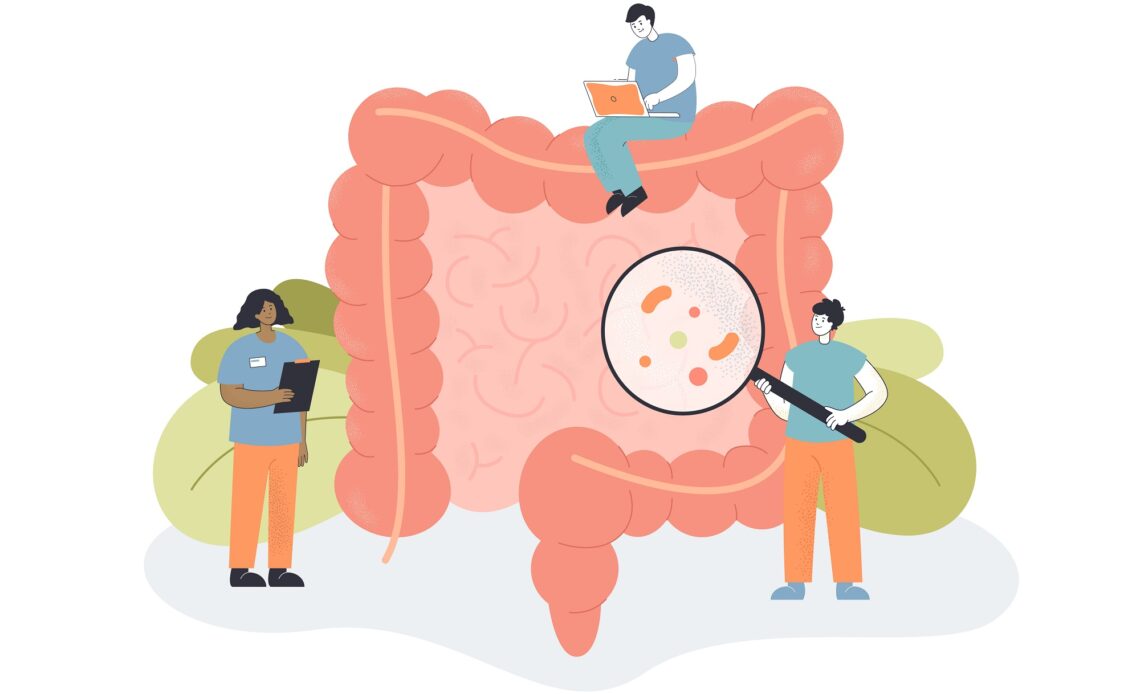The connection between intermittent fasting and gut health
Our gut, also known as the gastrointestinal tract, plays a crucial role in our overall health. It is responsible for digesting food, absorbing nutrients, and eliminating waste. The gut is also home to trillions of bacteria, collectively known as the gut microbiome, which have a profound impact on our health. Research has shown that there is a strong connection between intermittent fasting and gut health. When we fast, our body goes into a state of rest and repair, allowing it to focus on processes other than digestion. This can have a positive impact on the gut, as it gives the digestive system a break and promotes a healthy balance of gut bacteria.
What is intermittent fasting?
Intermittent fasting is a dietary pattern that involves alternating periods of fasting and eating. It is not a diet in the traditional sense, but rather a pattern of eating that restricts the time window in which you consume food. There are several different methods of intermittent fasting, including the 16/8 method, where you fast for 16 hours and eat within an 8-hour window, and the 5:2 method, where you eat normally for 5 days and restrict your calorie intake on the remaining 2 days.

How intermittent fasting affects digestion?
One of the key ways in which intermittent fasting affects digestion is by reducing inflammation in the gut. Inflammation is a normal immune response to injury or infection, but chronic inflammation can have detrimental effects on the gut. When we fast, our body produces fewer inflammatory molecules, which can help reduce inflammation in the gut and improve digestion.
Additionally, intermittent fasting has been shown to improve the function of the digestive system. When we fast, the digestive system has a chance to rest and recover, which can lead to better digestion and nutrient absorption. This can result in improved energy levels, better nutrient utilization, and reduced digestive issues such as bloating and indigestion.
The impact of intermittent fasting on the gut microbiome
The gut microbiome is a complex ecosystem of bacteria, fungi, and other microorganisms that reside in our digestive system. These microorganisms play a crucial role in our health, influencing everything from digestion to immune function.
Research has shown that intermittent fasting can have a profound impact on the gut microbiome. Fasting promotes the growth of beneficial bacteria in the gut, such as Bifidobacteria and Lactobacillus, while reducing the growth of harmful bacteria. This shift in the balance of gut bacteria can have wide-ranging effects on our health, from supporting better digestion and nutrient absorption to boosting immune function.
Benefits of intermittent fasting for gut health
There are several benefits of intermittent fasting for gut health. Firstly, it can help reduce inflammation in the gut, which is a common underlying cause of digestive issues such as irritable bowel syndrome (IBS) and inflammatory bowel disease (IBD). By reducing inflammation, intermittent fasting can help alleviate symptoms and improve overall gut health.
Secondly, intermittent fasting promotes the growth of beneficial bacteria in the gut, which can improve digestion and nutrient absorption. This can result in improved energy levels, better nutrient utilization, and reduced digestive issues such as bloating and indigestion.

Lastly, intermittent fasting has been shown to support a healthy weight, which is important for overall gut health. Excess weight, particularly around the abdomen, has been linked to an increased risk of gut-related conditions such as acid reflux, gallstones, and colorectal cancer. By promoting weight loss and fat loss, intermittent fasting can help reduce this risk and support a healthy gut.
Common misconceptions about intermittent fasting and gut health
There are several common misconceptions about intermittent fasting and gut health. One misconception is that fasting can lead to nutrient deficiencies. While it is true that fasting restricts the time window in which you consume food, it does not necessarily mean that you will be deficient in nutrients. It is important to focus on consuming a balanced diet during your eating window to ensure that you are getting all the necessary nutrients.
Another misconception is that fasting can disrupt the gut microbiome. While it is true that drastic changes in dietary patterns can temporarily disrupt the gut microbiome, research has shown that intermittent fasting can actually promote a healthy balance of gut bacteria. By reducing the growth of harmful bacteria and promoting the growth of beneficial bacteria, intermittent fasting can have a positive impact on the gut microbiome.
Tips for incorporating intermittent fasting into your routine for optimal gut health
If you are interested in incorporating intermittent fasting into your routine for optimal gut health, here are some tips to get you started:
- Start slowly: If you are new to intermittent fasting, it is important to start slowly and gradually increase the fasting window. Begin with a 12-hour fast and gradually work your way up to longer fasting periods.
- Stay hydrated: During your fasting window, it is important to stay hydrated. Drink plenty of water, herbal teas, and other non-caloric beverages to keep your body hydrated and support digestion.
- Focus on nutrient-dense foods: When you break your fast, focus on consuming nutrient-dense foods that support gut health. Include plenty of fruits, vegetables, whole grains, lean proteins, and healthy fats in your meals.
- Listen to your body: Intermittent fasting may not be suitable for everyone. It is important to listen to your body and pay attention to how you feel during fasting periods. If you experience any negative side effects, such as dizziness or extreme hunger, it may be a sign that intermittent fasting is not right for you.
Intermittent fasting and gut health studies and research
Numerous studies have been conducted to investigate the relationship between intermittent fasting and gut health. These studies have shown promising results, suggesting that intermittent fasting can have a positive impact on digestion and the gut microbiome.

For example, a study published in the journal Cell Research found that intermittent fasting can reduce inflammation in the gut and improve gut barrier function. Another study published in the journal Nutrients found that intermittent fasting can promote the growth of beneficial bacteria in the gut and reduce the growth of harmful bacteria.
While more research is needed to fully understand the mechanisms through which intermittent fasting influences gut health, these studies provide valuable insights into the potential benefits of intermittent fasting for digestive health.
Precautions and considerations for intermittent fasting and gut health
While intermittent fasting can have numerous benefits for gut health, it is important to approach it with caution and consider any individual health conditions or concerns. If you have any underlying health conditions, such as diabetes or a history of eating disorders, it is important to consult with a healthcare professional before starting intermittent fasting.
Additionally, it is important to remember that intermittent fasting is not a one-size-fits-all approach. Some individuals may thrive on intermittent fasting, while others may experience negative side effects. It is important to listen to your body and make adjustments as necessary to ensure that you are supporting your gut health in a way that works for you.
Conclusion
In conclusion, intermittent fasting has the potential to improve gut health by reducing inflammation, promoting the growth of beneficial bacteria, and supporting a healthy weight. By giving the digestive system a break and allowing it to rest and repair, intermittent fasting can have wide-ranging effects on digestion and the gut microbiome.
While more research is needed to fully understand the mechanisms through which intermittent fasting influences gut health, the existing studies provide promising evidence of its potential benefits. If you are considering incorporating intermittent fasting into your routine, it is important to start slowly, stay hydrated, focus on nutrient-dense foods, and listen to your body.
By understanding the relationship between intermittent fasting and gut health, you can optimize your digestion, support a healthy gut microbiome, and improve your overall health and well-being.


